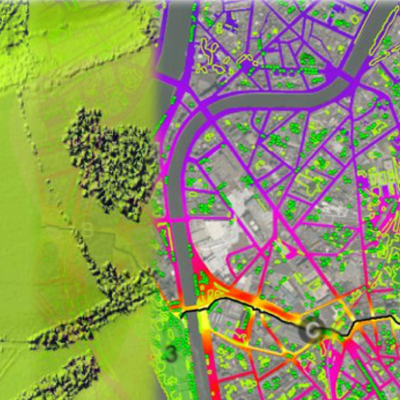Academics from Cranfield University have spoken about how artificial intelligence (AI) could help with monitoring opium poppy cultivation in Afghanistan at a meeting of the United Nations Office on Drugs and Crime (UNODC).
Dr Toby Waine, Dr Daniel Simms and PhD researcher Alex Hamer explained the potential of using AI to interpret data from satellites to help track where crops used for drug production are being grown.
Dr Waine, Senior Lecturer in Applied Remote Sensing in the Centre for Environment and Agricultural Informatics at Cranfield, said: “The distribution of opium cultivation in Afghanistan is constantly evolving due to varying environmental, social and economic pressures, such as water availability and counter-narcotics activity.
“Our research is using Earth observation data and information about seasonal and annual changes to identify agricultural features related to opium poppy cultivation. The shift to cloud computing opens up exciting possibilities for extracting new information from the huge amounts of satellite data from long-term Earth observation programmes.”
The meeting was held as a side event of the 63rd session of the Commission on Narcotic Drugs in Vienna earlier this month.
Dr Daniel Simms, Lecturer in Remote Sensing, said: “Information on illicit poppy cultivation in Afghanistan is of critical importance to the opium monitoring programme of the UNODC. Remote sensing already plays a key role in gathering information on areas of opium cultivation and its spatial distribution. AI can help us to interpret large volumes of satellite images in a cost-effective, accurate way.”
The UNODC works with the main drug-growing countries in the world to monitor the extent and evolution of illicit crops. Crop survey data helps governments in their policy development and in planning how to tackle illicit crops.
The research project, Understanding landscape change in support of opium monitoring in Afghanistan, is running between September 2017 and December 2020 in partnership with the UNODC.
Alex Hamer is completing his PhD as part of the Natural Environment Research Council’s Centre for Doctoral Training in Data, Risk and Environmental Analytical Methods (DREAM) established between Cranfield, Newcastle, Cambridge, and Birmingham universities.
About Cranfield University
Cranfield University is a specialist postgraduate university that is a global leader for education and transformational research in technology and management.






